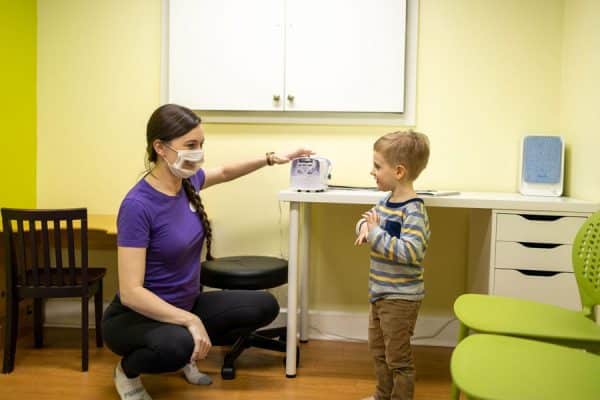Social Skills
Does your child sometimes have difficulty interacting with others in social situations? They may tend to “take over” in conversations, have difficulty telling and understanding stories, at times say things that are considered inappropriate or offensive to others, or may have difficulty making and keeping friends. You might notice that they have difficulty understanding figures of speech, or making inferences and “reading between the lines”. These challenges, and many others, can be described as difficulties with Social Communication, or Social Skills.
Difficulties with social communication may be related to other challenges or disorders, such as Autism Spectrum Disorder (ASD), Attention-Deficit/Hyperactivity Disorder (ADHD), or Developmental Language Disorder (DLD) or other language difficulties. Depending on the characteristics, it may also be considered part of a Social Communication Disorder (SCD). However, there may be no known or single specific cause that explains your child’s social communication difficulties.

If you feel that your child’s social communication differences or difficulties are interfering with their self-identity or their ability to maintain relationships, both in social and academic settings, an assessment may be appropriate.
During the assessment, our Speech-Language Pathologists will take a thorough case history and will engage your child in conversation and/or play to observe their social communication skills. You may be asked to complete a checklist or questionnaire to gain a better profile of your child’s interaction style. More formal assessments (e.g., problem-solving scenarios, role-play or figurative/ambiguous language tasks) may also be used to better understand your child’s profile, depending on their age and level of communication.
Why Butterfly?
Our therapists understand that each individual has a unique way of interacting with others. We know that fostering a solid self-identity is foundational to learning how to navigate the many social interactions your child will encounter throughout their life; whether with peers, at school, in the community, or eventually, in the workplace. Our therapists will work with you and your child to identify the social situations that pose a challenge to your child, collaboratively choose goals that are motivating and achievable, and build social competence that will help your child continue to develop their social skills as they grow, and as their social situations change over time.
These goals may target: learning to join peers in play; identifying emotions in oneself and others; understanding conventional and culturally-relevant rules of conversation; understanding expressions, figures of speech and abstract language; or any other challenge that your child encounters in social situations. Additionally, members of our team are trained in the Zones of Regulation approach, and are familiar with the Social Thinking Curriculum.
